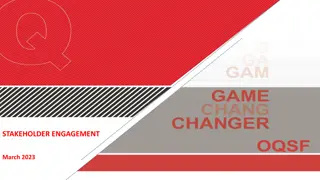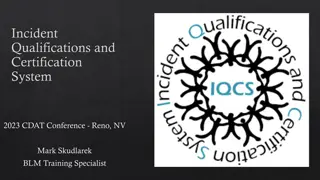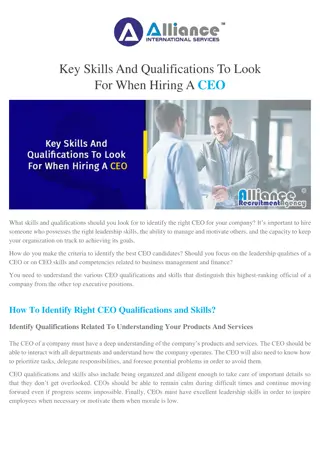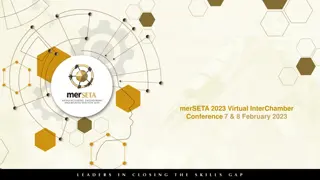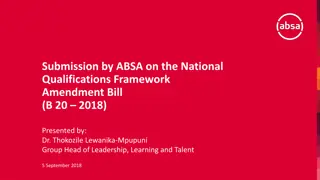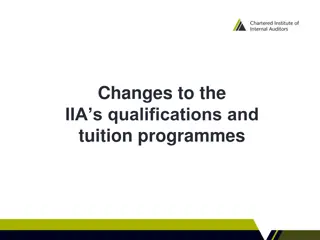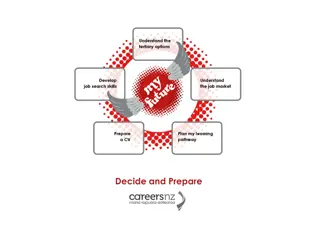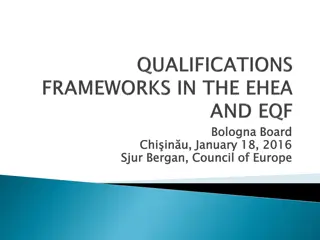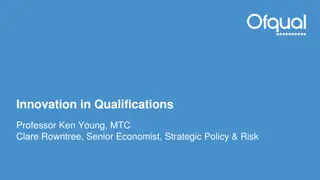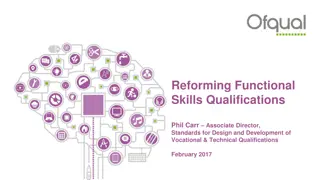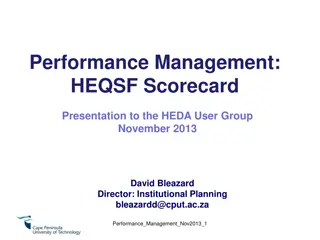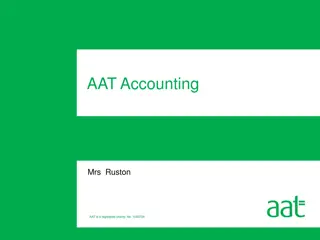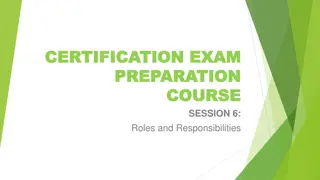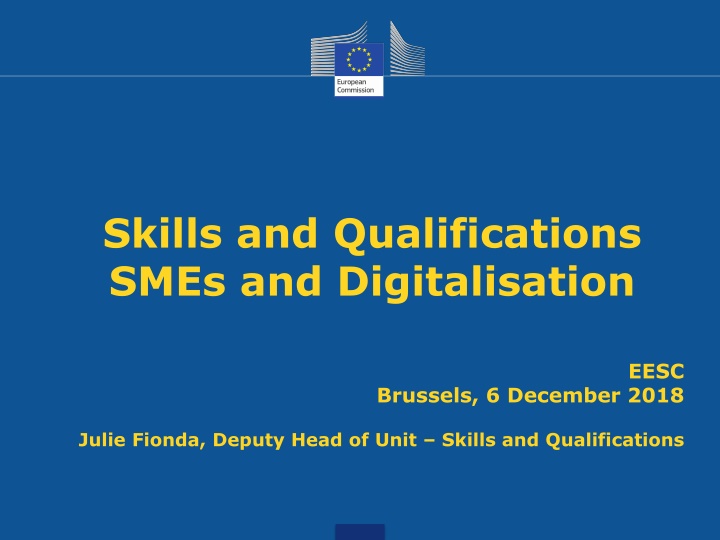
Navigating the Skills Landscape in the Digital Era
Explore the evolving landscape of skills and qualifications in the digital age, emphasizing the importance of upskilling and reskilling for the workforce. Discover key initiatives such as the Skills Agenda for Europe and the Digital Skills and Jobs Coalition to address the growing demand for digital competencies. Stay informed about the changing job market and the essential role of digital skills in shaping future career paths.
Download Presentation

Please find below an Image/Link to download the presentation.
The content on the website is provided AS IS for your information and personal use only. It may not be sold, licensed, or shared on other websites without obtaining consent from the author. If you encounter any issues during the download, it is possible that the publisher has removed the file from their server.
You are allowed to download the files provided on this website for personal or commercial use, subject to the condition that they are used lawfully. All files are the property of their respective owners.
The content on the website is provided AS IS for your information and personal use only. It may not be sold, licensed, or shared on other websites without obtaining consent from the author.
E N D
Presentation Transcript
Skills and Qualifications SMEs and Digitalisation EESC Brussels, 6 December 2018 Julie Fionda, Deputy Head of Unit Skills and Qualifications
We are now at a point where we must educate our children in what no one knew yesterday, and prepare our schools for what no one knows yet. Margaret Mead, Anthropologist and Author "Learning is not a product of schooling but the lifelong attempt to acquire it" Albert Einstein, Scholar "Self-education is, I firmly believe, the only kind of education there is. Isaac Asimov, Author and Biochemist
Digitalisation transitions changing jobs more frequently - 15-20 different jobs in a lifetime content of work changing faster - by 2022: 54% of existing workforce will need up/reskilling changing tasks more than redundant jobs 'cobotisation' - 2018: machines/algorithms 29% - humans 71% - 2022: machines/algorithms 42% - humans 58% EC- EPSC (2016), Eurofound (2018), WEF (2018)
SKILLS AGENDA FOR EUROPE Quality & relevance of skills Visibility and comparability Skills intelligence 1. Upskilling Pathways 7. Revision of EUROPASS 5. Revision of EQF 2. Key Competences Framework 8. Analysis of brain drain 9. Blueprint for Sectoral Cooperation on Skills 3. VET as a first choice 6. Skills profile tool for 3rd country nationals 4. Digital Skills and Jobs coalition 10. Initiative on graduate tracking
Digital skills in numbers 10% of labour force have no digital skills at all. 35% of labour force insufficient skills 90% of jobs require some digital skills ICT jobs 3.7% of total employment (8.2m people) Risk we will lack 500,000 ICT specialists in 2020 13% of Europeans have never gone online, 19% have no digital skills at all EC - DESI, 2018
Digital Skills and Jobs Coalition Brings together Member States, companies, social partners, non-profit organisations and education providers who take action to tackle the lack of digital skills in Europe. 90 pledges 18 national coalitions
Big data analysis of skills needs Tens of millions of online vacancies What are the skills sets they require? How does this vary across Europe? What trends can we see? First data release 2019 Cedefop expertise
Europass Suite of documents and services to improve transparency of skills A Europass CV downloaded every 1.5 seconds Over 125m filled in so far (2005-18) The new Europass
Europass e-portfolio TOOLS AND INFORMATION Free e-Portfolio for Career Develoment and Lifelong Learning Store documents, open badges, video CVs Create CVs/applications Set career goals, self- assess skills
Digital credentials A technical framework to issue digital credentials to people Fraud-proof Can include information on the qualification, awarding body, and the qualification system Machine-readable for online applications, job matching, etc.
So what does this mean for SMEs? Making it easier to identify the right candidates for jobs to understand their qualifications to trust their documentation is genuine and to have them find you More information on trends in your sector also for those delivering education and training Investing in people maybe even more important than in large companies
"What if I invest in my staff and they leave my organisation what if you don t invest in them and they stay" Marianne Thyssen, EU Commissioner for Employment
Julie FIONDA Deputy Head of Unit Skills and Qualifications Employment, Social Affairs and Inclusion European Commission, SPA4 4/015 200 Rue de la Loi, B-1049 Brussels, Belgium Tel. +32.2.29.51856 julie.fionda@ec.europa.eu


